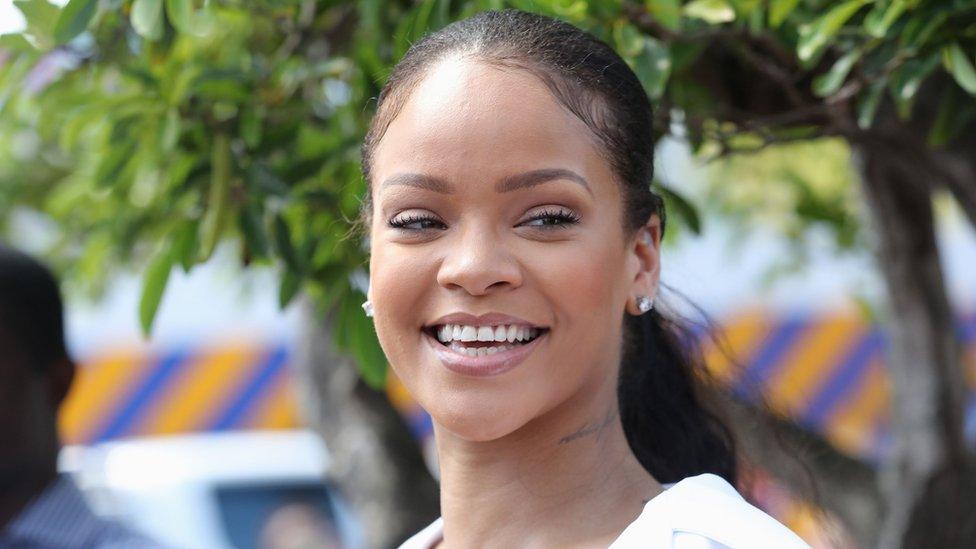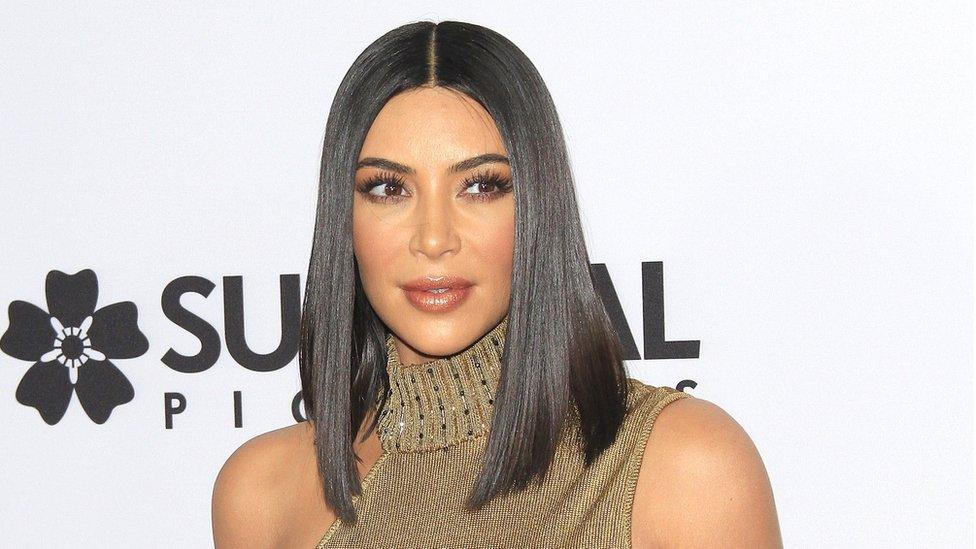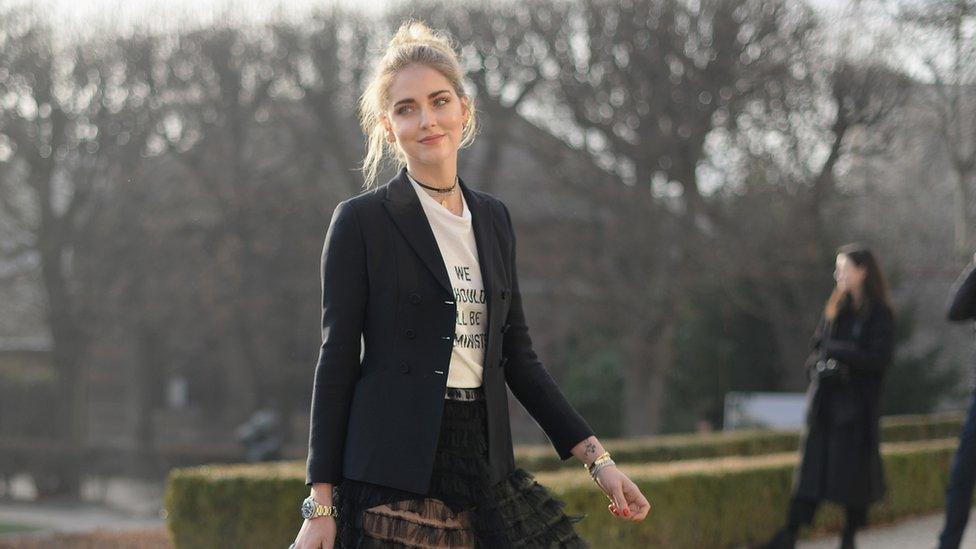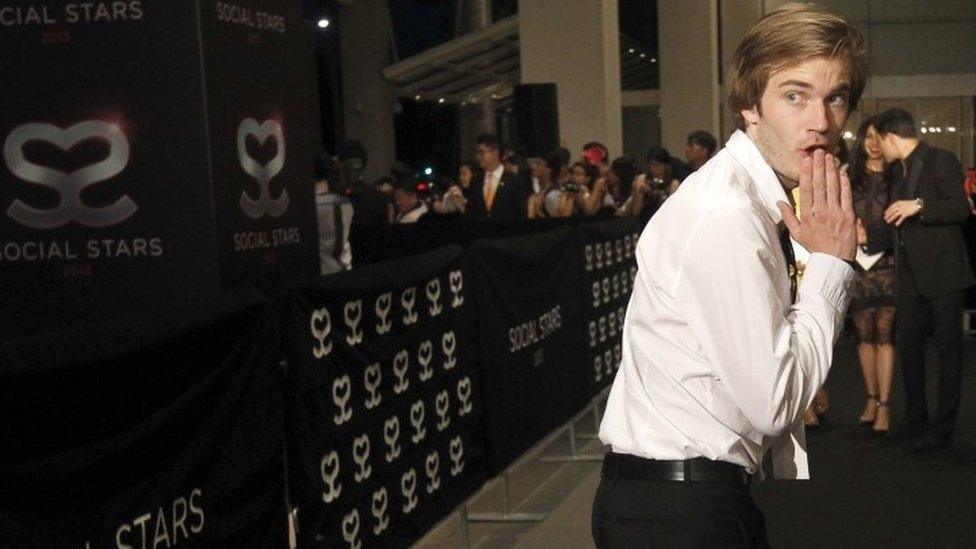Celebrities warned over Instagram ads
- Published

Rihanna was one celebrity accused of secretly endorsing a product on Instagram
Celebrities and "influencers" in the US have been warned to clearly identify when they are promoting products on Instagram in return for payment.
The consumer regulator sent letters to more than 90 individuals and marketing firms, though it has not revealed who was put on notice.
It is the first time the regulator has intervened on the issue.
An advocacy group which petitioned for the move said Instagram had become "a Wild West of disguised advertising".
'Deceiving consumers'
The Federal Trade Commission targeted a sample of posts that either referenced a brand or directly endorsed products.
Its rules say that anyone endorsing a brand must "clearly and conspicuously" declare connections to it, for example if products have been given free, if a payment has been made for the endorsement or if there is a business or family relationship.
The rules apply to marketing agencies involved in such deals as well as the endorsers themselves.

Kim Kardashian is among the "influencers" named in the petition, though it is unclear if she was among those who received a warning
The intervention was part-prompted by the advocacy group Public Citizen which carried out its own investigation, external last year, naming celebrities including Rihanna and Kim Kardashian among 113 influencers who it said endorsed a product without disclosure.
"Instagram has become a Wild West of disguised advertising, targeting young people and especially young women," the group said.
"It is often unclear whether an Instagram user is paid to post a product endorsement or if they genuinely use it. That's exactly why brands are using influencer marketing as a primary way to reach young consumers. But without clear disclosure, brands are deceiving consumers and reaping the monetary benefits."
Growing trend
Points made by the regulator in the letters include:
Some disclosures which had been made were not clear enough. It said that "#sp," (an abbreviation for sponsored), "Thanks [Brand]," or "#partner" in an Instagram post did not make it obvious to many people that a post was paid for.
Instagram users on smartphones typically see just the first three lines of text on a post, unless they expand it. Therefore disclosures should be made high up in the post.
When multiple tags, hashtags, or links are used, readers may just skip over them - meaning a disclosure may not be conspicuous.
The regulator did not give specific wording which should be used to make a disclosure but said that phrases such as "paid for" "Sponsored" and "Promotion" may help get that message across, as well as "#ad".
In guidelines, external it also says "A simple disclosure like 'Company X gave me this product to try...' will usually be effective."
Social media has become an increasingly important part of marketing campaigns for many brands around the world, especially those aimed at younger consumers.
Celebrities and others who have garnered huge followings on Instagram and other services are often part of advertising campaigns.
The FTC has previously taken action when its rules have been violated. Last year it reached a settlement with Warner Bros over claims the firm had not disclosed it had paid high profile YouTubers to give one of its video games positive reviews.

Instagram's non-celebrity 'influencers'

Chiara Ferragni has almost 9 million Instagram followers
Aside from celebrities, there are countless "digital influencers" on social media, people who have risen to a celebrity-like status with millions of followers. On Instagram they include:
Fashion blogger Chiara Ferragni - 8.9 million followers
Fashion blogger Aimee Song - 4.5 million followers
Style blogger Julie Sarinana - 4.5 million followers
Photographer Brian DiFeo - 3 million followers
Photographer Liz Eswein - 1.3 million followers
The exact net worth or rate per post is hard to pin down, but be prepared to fork out several thousand dollars, or even tens of thousands, if you want your product featured in one of their Instagram posts.

- Published16 February 2017
